Publications
For the last decade I've spent most of my time on research management, preparing the European Social Survey to become a European Research Infrastructure Consortium ('ERIC' - legacy secure!), and then in a leadership role establishing and consolidating the ERIC in its early years. That said, I do find time to write now and again, and there's a selection of outputs on this page. Click through the picture links for more material, where it exists.
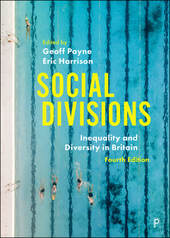
NEW: In April 2020 Policy Press will release the fourth edition of the well regarded student text Social Divisions. For this revision, I have joined Geoff Payne in the editing duties. The book runs to more than 500 pages of contributions from leading colleagues in the main fields, and is crammed with insight and analysis, as well as being bang up to date empirically. I have also collaborated with John Scott to revise the chapter on class and stratification. The book will be launched at this year's British Sociological Association conference at Aston University in April.
“Incisive, wide-ranging and forcefully argued, Social Divisions is essential reading for scholars of inequalities and stratification. An indispensable guide to how social divisions shape and constrain our lives.” Wendy Bottero, The University of Manchester.
“Incisive, wide-ranging and forcefully argued, Social Divisions is essential reading for scholars of inequalities and stratification. An indispensable guide to how social divisions shape and constrain our lives.” Wendy Bottero, The University of Manchester.
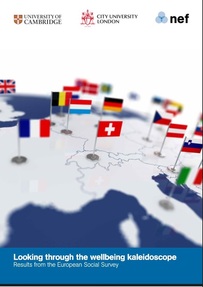
The main report from a project funded through ESRC's Secondary Data Analysis Initiative. The project 'Making Wellbeing Count for Policy', a collaboration between my team, Cambridge University and the New Economics Foundation, ran from January 2015 to February 2016. Published in Spring 2016, Looking Through the Wellbeing Kaleidoscope is divided into four chapters examining different aspects of the wellbeing literature. Cambridge write about the 'flourishing' debate in positive psychology and a new iteration of this, the Comprehensive Psychological Wellbeing (CPWB) index. NEF explore the 'five ways to wellbeing', and who does them in which European countries; they also look at the drivers of inequalities in wellbeing in different countries and point out that systematic disadvantage of certain subgroups is not repeated in each and every country. Finally I and my colleagues in CCSS introduce the concept of the perceived quality of society (PQOS) and operationalise it using nine items from the core of the European Social Survey (ESS). Each chapter concludes with reflections on implications for public policy making, based on roundtable events with practitioners and policy professionals during the project.

I was approached through a colleague to contribute to this collection of essays reflecting on career trajectories into and through the discipline. In the piece 'A Career spent orbiting Sociology', I note how though self-defining and trained as a sociologist I have spent the larger portion of my time outside mainstream academic departments bearing that name. In common with other contributors I offer advice to those in early career about how to navigate their way. The book was published in April 2015.

Rob Mears and I became interested in the new positions emerging in the HE labour market, what others have called 'Third Space' opportunities. What started life as a paper at the 2010 Work Employment and Society conference in Brighton, became a contribution to a volume by the Academic Working Lives project at Glamorgan. This was published at the end of 2013 and was launched formally in Cardiff in March 2014. Now reprinted in paperback.
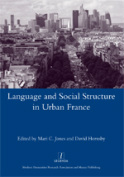
In July 2010 I was invited to take part in the first of two AHRC-funded workshops for the Language and Social Structure in Urban France network (AHRC Research Network Project RG57301). I gave a paper on the experience of measuring class cross-nationally at the final Colloquium in September 2011 which formed the basis for my contribution to this volume (Chapter 1). This was published in November 2013.
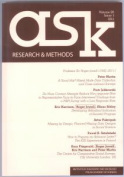
Since 2008 I have been working on and off with colleagues to construct and popularise a set of indicators of 'perceived societal wellbeing' - citizens' evaluations of the quality of their own societies. This was our first attempt to produce a mini-module of items, and place them within the context of sociological theory. Published at the end of 2011, this was sadly the last published work involving our late colleague Roger Jowell.
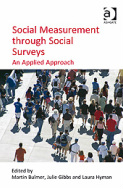
My contribution to this book draws on two sets of professional experiences: firstly my involvement in the ESeC project between 2004 and 2006 as an academic working in the field of social stratification; and secondly as a survey methodologist working in the team coordinating the European Social Survey. The chapter focuses on the operationalising of social class in surveys and the compromises between accuracy in measurement and pragmatism in application.
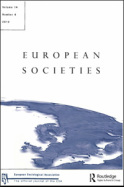
This paper with David Rose presents the conceptual background to the European Socio-economic Classification, and offers an overview of the initial analysis performed in order to demonstrate the criterion and construct validity of ESeC. Appeared in 2007.
|
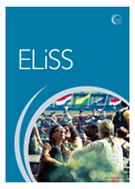
This paper reports the findings of a follow-up study we did ten years on from our survey of assessment practice in UK sociology departments. C-SAP funded Rob Mears and Alan Buckingham to field a partial replication, supplemented with focus groups of undergraduate students in five HEIs. The paper discusses what the results tell us about the impact of a decade of innovation in teaching and learning policy. Appeared in December 2013.
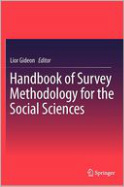
This collection of treatments of the state of the art in survey methodology was published in August 2012. I made two contributions to the book with my ESS colleague Ineke Stoop, who works at the Netherlands Institute for Social Research. One sets out the main challenges presented by the use of face-to-face data collection in cross-national social surveys. In addition our chapter in Part I of the book tries to classify the many types of surveys.
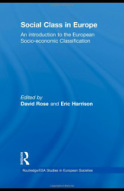
Between 2004 and 2006 I was the asssistant academic convenor to an EC Seventh Framework Programme project to develop a European Socio-economic Classification (ESeC). This book by the consortium of academics involved, edited by the PI David Rose and me, offers a comprehensive overview of the issues, presents evidence gathered to validate the classification, and charts the challenges facing the field of cross-national class analysis. First appeared in 2010, reissued in paperback 2012.
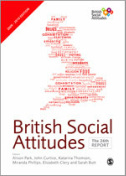
This chapter with Rory Fitzgerald - entitled 'A Chorus of Disapproval?' - used data from the 'timing of life' module in Round 3 of the European Social Survey. The paper looks at variations in attitudes to gender roles and family norms, in relation to the actions of both men and women. As part of the annual BSA report, the emphasis is on British results but in the context of broader patterns of attitudes throughout Europe. The approach has been built on by O'Reilly et al (2013).
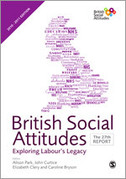
This paper uses data from the British Social Attitudes Survey and the European Social Survey. It examines the attitudes of different age groups to their own lives and to those of other age groups. The analysis draw on a module called 'attitudes to age and ageism' from Round 4 of the ESS to examine respondents' perceptions of their treatment and the way they are viewed in society. The focus is on Great Britain.
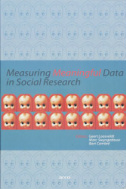
A paper written in 2007 for our former colleague Jaak Billiet's Festschrift. Still a relatively novel basis for empirical research, it demonstrates the significance of non-response in surveys by quantifying the effects of post-stratification weighting on the social class distribution of the ESS data. While relatively modest and confined to each end of the class structure, these adjustments are not in the same direction for each country - an extra headache for cross-national research.
|
